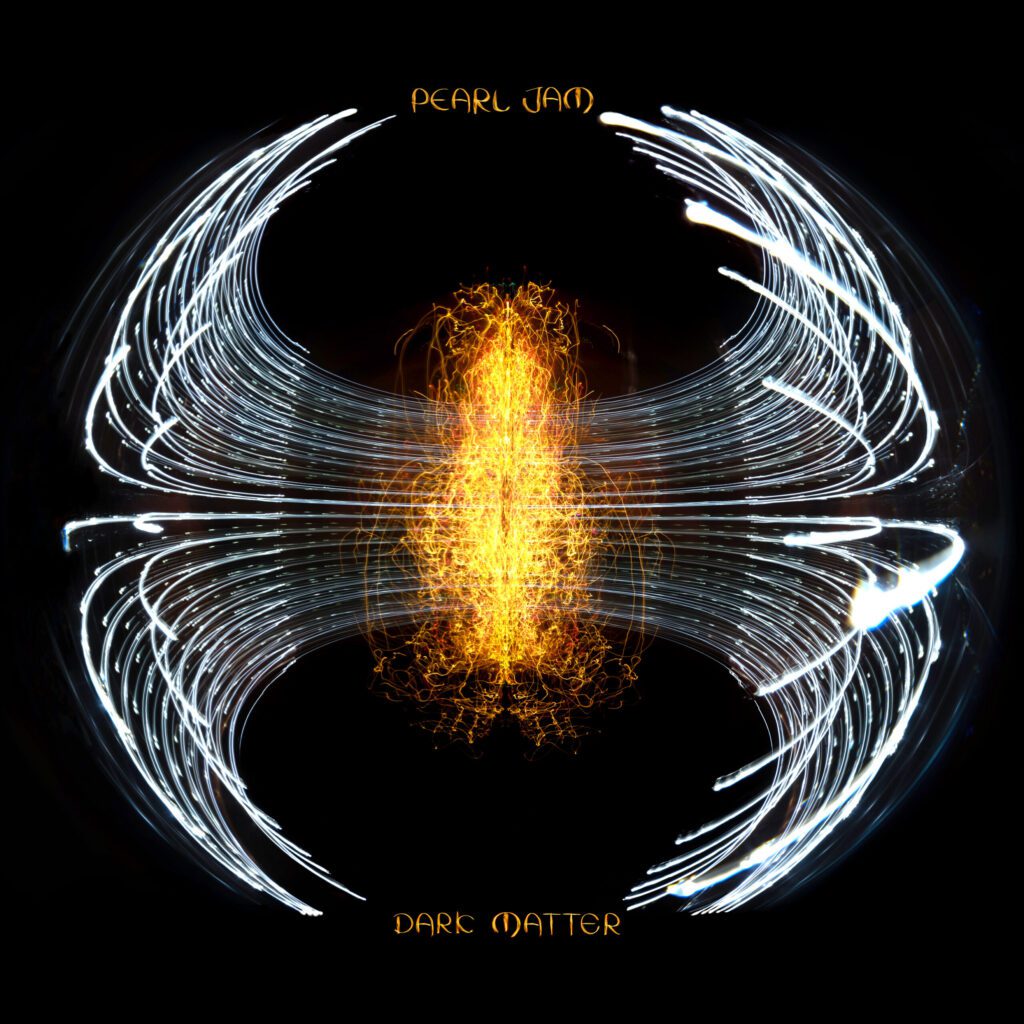
There are certain things aging rock stars say when they’re a few decades in and releasing their 12th album. They might say they are rocking harder than you’ve heard them in years, that “It’s a lot heavier than you’d expect.” They might say, no, really, “No hyperbole… this is our best work.” These are certain things members of Pearl Jam, a group of aging rock stars, said in advance of their own 12th album, Dark Matter, which arrives nearly 35 years into their career. As you might imagine, not all of these things ring true.
Pearl Jam are long past the turning point after which their albums purely existed for the diehard fanbase. Schisms in that audience have always meant the devout are wildly divided on what is the band’s peak era and what constitutes a “good” latter-day Pearl Jam album. Some embraced the back-to-some-kind-of-basics albums Pearl Jam favored for much of this century, from the reboot of their 2006 self-titled through Backspacer and Lightning Bolt. As such semi-conscious returns to form go, those albums were often more a reclamation of an idea of Pearl Jam’s early days. In comparison, those of us who prefer Pearl Jam’s searching middle years may have had warmer feelings toward the meditative, atmospheric Gigaton, the album Pearl Jam returned with in 2020 after a long seven-year gap. Dark Matter now arrives as a complete about-face from that album. While not exactly a complete apology for Gigaton, the comments the band have made thus far have an implicit undertone: If you didn’t like reflective aging Pearl Jam, don’t worry, we turned the guitars back up.
The genesis of Dark Matter is a funny one — rapid, but spread out. Spurred on by recording his 2022 solo LP Earthling with the young super-producer Andrew Watt, Eddie Vedder had an idea. He told Stone Gossard, Jeff Ament, Mike McCready, and Matt Cameron to come down to Watt’s studio in LA, with a “Let’s just see what happens” kind of attitude. In a complete reversal from their past several recordings, the five members of Pearl Jam gathered in a room, banged out ideas together, and wrote a host of songs in a matter of days. Schedules delayed a second get-together, but eventually they congregated with Watt for another two-week session in 2023.
Boom, that was it. As a group approaching their twilight years, Pearl Jam have understandably slowed down when it comes to releasing albums. While four years is not a short period of time, the actual writing and recording of Dark Matter was breakneck relative to the extensive solitary demoing that eventually coalesced into Gigaton. This time around, that was the sense of experimentation: What inherent Pearl Jam ethos could emerge from just playing together live? Rather than belabored arrangements and more spacious compositions, the band honed in on material that, while still bearing their trademark muscularity and Watt’s trademark slickness, does feel a little looser than any Pearl Jam album in recent memory. It makes complete sense they would find the result to be potent and vital.
While it might not be as heavy as McCready suggested, Dark Matter is definitely a more invigorated rock-forward album. Upon the release of its advance singles “Dark Matter” and “Running,” this seemed to foreshadow a misfire full of clunky attempts at bygone ferocity. Those tracks function as the now-requisite ragers on later Pearl Jam albums — placeholders, also-rans, the band straining but floundering. Elsewhere, focusing on the power of Cameron’s drums, big guitar leads, and Vedder’s immortal vocals actually results in some convincing arguments for a bread-and-butter Pearl Jam collection. Opener “Scared Of Fear” is a nimble earworm, and mid-paced rockers like “Wreckage” are a lived-in continuation of Pearl Jam’s particular brand of grandeur. “Setting Sun” is a raggedly majestic closer. As ever, there are gems for the obsessives to find if they want.
Here’s another thing aging rockstars say: Whatever they’re releasing now, so many years down the road, is finally reminiscent of the initial classics. It’s another insinuation, a promise suggesting something along the lines of “If you miss the albums you loved when you were in your early twenties, fear not, we have finally made something that will give you euphoric recall.” This is, almost always, a completely inaccurate claim that sets up an album of echoes, duds, or signs that an artist is out of touch with what they’re currently making or who they are in this moment.
Shockingly, out of all the ways Pearl Jam have previewed Dark Matter, the promise of a return to their early essence often feels the most apt. Perhaps it is partially attributable to the band’s assessment of Watt as a lifelong fan who urged them to lean into sounds and quirks he’s loved in their music since he was a kid. More scholarly Pearl Jam listeners may find ways to tie a song like “Wreckage” to a blearier Binaural or Riot Act-era ballad, but its autumnal guitars are one of those elements that scream “’90s Pearl Jam.” And there are tiny moments like that throughout Dark Matter, from the casually anthemic chorus Vedder spins on “Got To Give” to the reverbed percussion that opens “Setting Sun.” One of the album’s most striking tracks is “Waiting For Stevie,” one of the first songs completed in the initial Watt session. It feels not like a track beamed in from 1991, but an honest-to-god proper descendent of that iteration of Pearl Jam, fittingly weathered by time but still gleaming.
On initial listens, Dark Matter might sound predictable or half-baked, like its gestation was a little too quick. Yet while Vedder’s proclamation that it’s their best work is obviously wrong, Dark Matter proves itself to be remarkably solid for a band this far in, working over familiar patterns and tropes very much already established in their wheelhouse. That ends up being the counterintuitive strength of Dark Matter and the benefit of how the band made the album. This time around, a return to some core notion of Pearl Jam works because they were actually present in a room together; it’s no coincidence that many of these songs feel like, in some years time, they’ll sit just fine alongside songs from across the catalog that have had far longer to mature into road-worn staples.
This is not a Pearl Jam that’s evolving and experimenting. Different listeners’ mileage will likely determine whether they find tracks like the gently shambling “Something Special” or “Upper Hand” worthy additions to the canon or unnecessary retreads. (The latter in particular will elicit “All Those Yesterdays” comparisons for its Beatles-esque guitar figure.) Many less invested listeners won’t give Dark Matter a second thought beyond it being yet another installment in a body of work whose legacy was already solidified, from a band that remains massive and adored but not relevant. Some will hear a fiery rebirth after a series of more stilted or staid Pearl Jam collections. Some will hear a pale shadow of past glories. Yet some will hear all they need: a new Pearl Jam album, delivered as they approach their final act, sounding like nobody but themselves.



